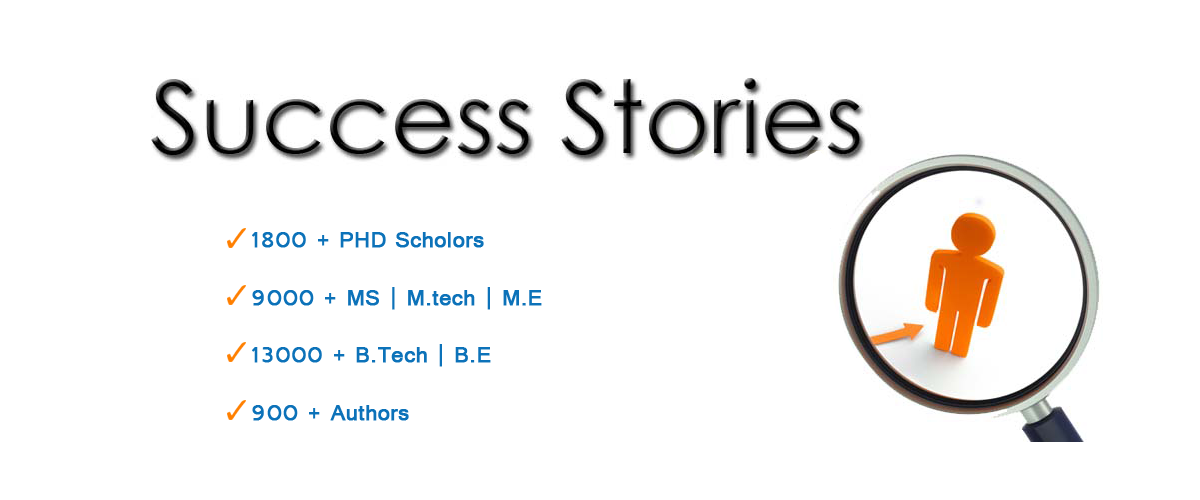LTE PROJECTS
LTE Projects are preferred by majority of scholars and students today due to its immense research scope. In this LTE [Long term evolution] is a high speed wireless communication technology used for Mobile phones and data terminals. It is based on UMTS/HSPA and GSM/EDGE network technologies and uses different radio interfaces to increase the speed and capacity of the network. LTE can be interfaced with 3G, 4G or 5G Network standard based on our needs. Most often LTE is interfaced with 4G or commonly known as 4G LTE.
LTE-A
It has also emerged as a standard for 5G Networks. Today most of the scholars are attracted towards this emerging field due to its key features like scalable bandwidth, all IP network support, improved spectral efficiency, increased downlink and uplink data rates with 5G QoS parameters etc. To accommodate the needs of budding scholars and students. We also have started our service 7 years before with the only focus of- “Service for students”.
We are also proud to say that up to now, we have served 5000+ students worldwide with the satisfaction that students are contented with our service. If you want to be one among our contented student, commit with us today and enjoy our unlimited service. Now, let’s have also a glance over few highlights about LTE along with its recent research areas and also topics, also for students to get a better understanding about LTE projects.
Highlights about LTE
- Peak data rate[DL:100Mbps, UL- 50Mbps]
- Peak spectrum efficiency[DL- 3 to 4 times release 6 HSDPA, UL- 2 to 3 times release 6 enhanced uplink]
- C-plane capacity[supports 200 users per cell in the active state also for spectrum allocation up to 5 Mhz]
- Mobility support[ supports mobility across the cellular network for various mobile speeds up to 350 km/h]
- Other technologies[LTE-A[Advanced] and also LTE-U[LTE in unlicensed spectrum]]
- Use Orthogonal frequency division multiple access also for downlink and Single carrier FDMA for Uplink
- Supports FDD, TDD and also half duplex FDD communication system
- Supports Multicast broadcast single frequency network
- LTE direct[a new protocol also for enabling device to device communication]
- Key driving factors of LTE:
- -Flexible spectrum allocation
- -Proficient spectrum utilization
- -Improved system coverage and capacity
- -Reduced latency also in with high data rates
- -Reduced cost also for operator
Support for algorithm/protocol/techniques
- Diameter base protocol
- SGs Application part protocol
- Non access stratum also in protocol
- Packet data convergence protocol
- S1 Application protocol
- X2 Application protocol
- GPRS Tunneling also in protocol
- MAC protocol
- Voice over internet protocol
- Delay limited scheduling algorithm
- Video streaming protocol[UDP, RTP, also dynamic adaptive streaming over HTTP] support
- Resource management scheme[Lexicographic greedy algorithm, also delay prioritized scheduling algorithm]
LTE Simulation
- LTE Network Simulator
- NetSim
- Valid8 LTE core Network simulator
- Vienna
- LENA
- OpenLTE
- SimuLTE
- LTE-Sim
- And also LTE-EPC
Other Simulation tools for LTE
- LTE with also NS2[Supports ns 2.33 and 2.32]
- LTE-with NS3[LTE Module support-LENA]
- LTE with also Matlab[LTE system toolbox]
- LTE-with Opnet[supported by Opnet Modeler, LTE-A not supported]
- LTE with also Omnet++[SimuLTE, technological support- SAE, MIMO, OFDM]
Research areas in LTE
- LTE based high speed railway networks
- Assessment of LTE 450 MHZ system
- 4th generation radio technologies
- Spectrum sharing system[for 4G and also 5G]
- LTE security issues
- MIMO enhancement and OFDM
- Energy efficient dynamic point selection and also IEEE 802.11 WLAN discovery scheme
- Multi cell cooperation Tx/Rx[CoMP]
- Channel/carrier aggregation
- Interference management also in heterogeneous cell overly
- Densification[Small cell solution]
- Wimax and LTE
- Policy management and also control for LTE/4G
- Tackling increased density of 5G Networks
- Autonomics and also policy based management
- Scheduling method also for Intra cell CoMP in LTE-Advanced
- Packet scheduling scheme also for Multimedia applications
- Non repudiation and also fast group discovery in M2M communication
Recent Research topics in LTE
- Stochastic modeling and measurement of Interruption time and handover delay of Smartphone real time applications also in LTE Networks
- QOS Optimization and cross layer adaptation also in LTE- Advanced and beyond networks
- Adaptive antenna systems also for LTE using particle swarm optimization and genetic algorithm
- Low complexity joint interleaving technique also for PAPR reduction in LTE-A carrier aggregation
- Resource partitioning and data offloading also using Network economics approach in two tier LTE HetNets
- OFDM-CDMA combinational method also for capacity enhancement of voice over LTE Uplink in PMR context
Let some recent titles for you,
- Link adaptation algorithm and also joint resource allocation with carrier aggregation in 5G LTE-A networks
- Performance estimation of LTE-A downlink adopting higher modulation in Small cells
- Functional models and 4G LTE architecture of VoLTE services and also Video streaming
- Threshold based multi traffic load balancing scheme also for LTE-Advanced Networks
- Coverage enhancement of PBCH in LTE-A Networks also using reduced search viterbi
- Experimental analysis of energy saving scheme also for enodeB on/off in LTE Networks
Hope you would also have got some idea for your LTE-projects. You can also work on any of the above mentioned topics/research areas or can also bring your own concepts or novel ideas. We also will offer you an all round support also for your project with the help of our renowned experts and professionals. For further guidance, also approach our experts through our online service [24/7 for you].
SHARE YOUR THOUGHTS ………GET OUR AID……..
AND LET’S WALK TOGETHER………
TOWARDS YOU’RE PATH OF SUCCESS…………..







